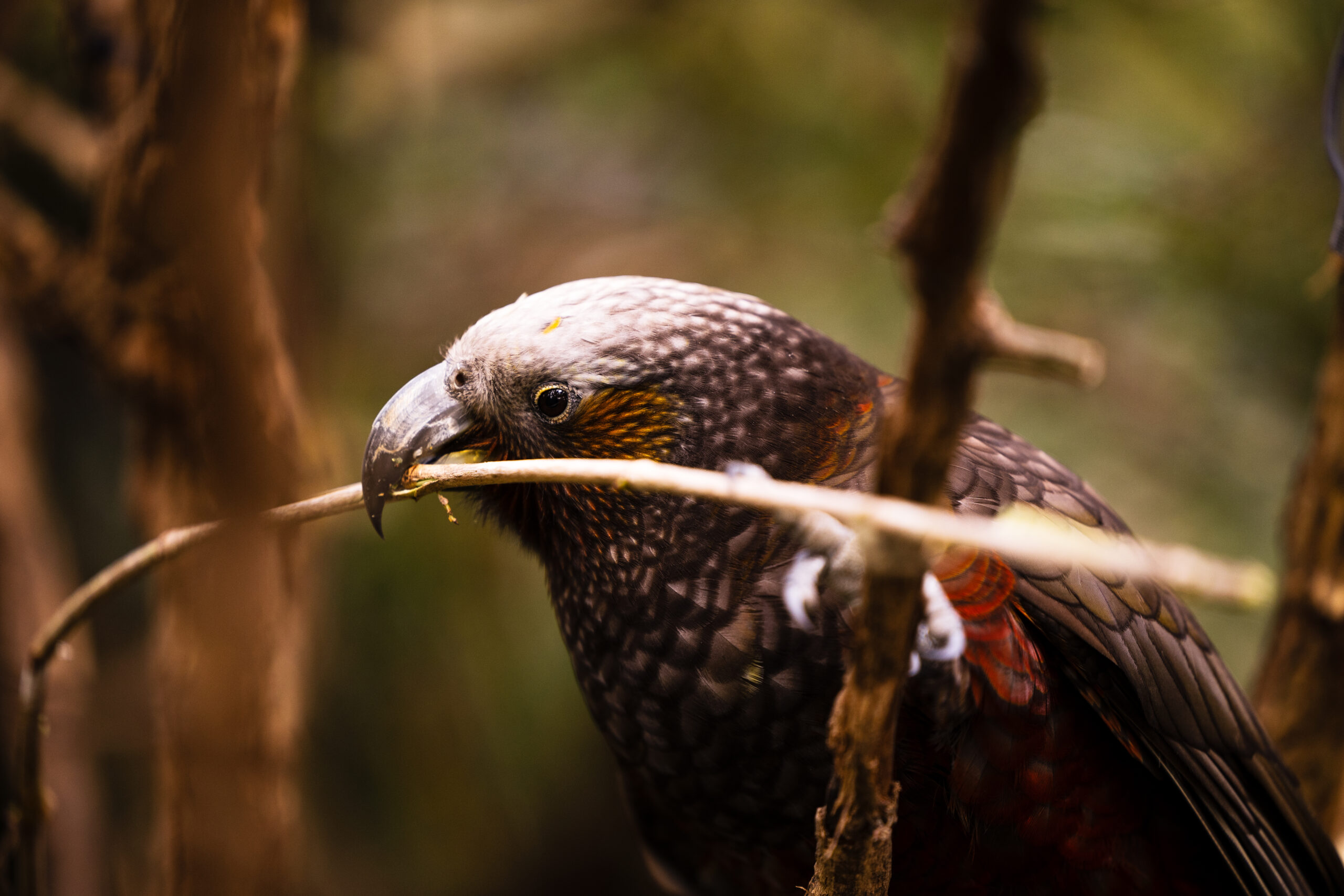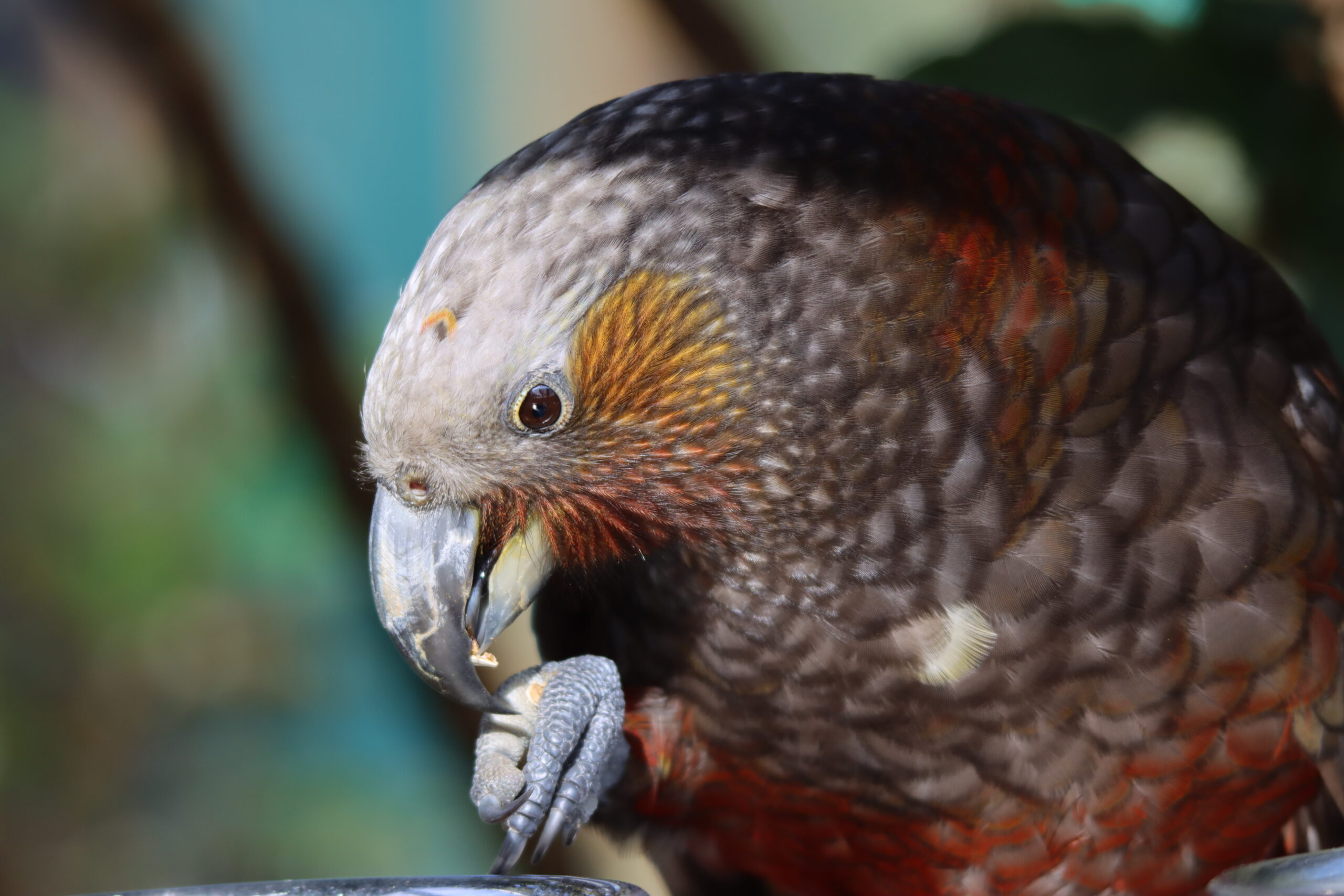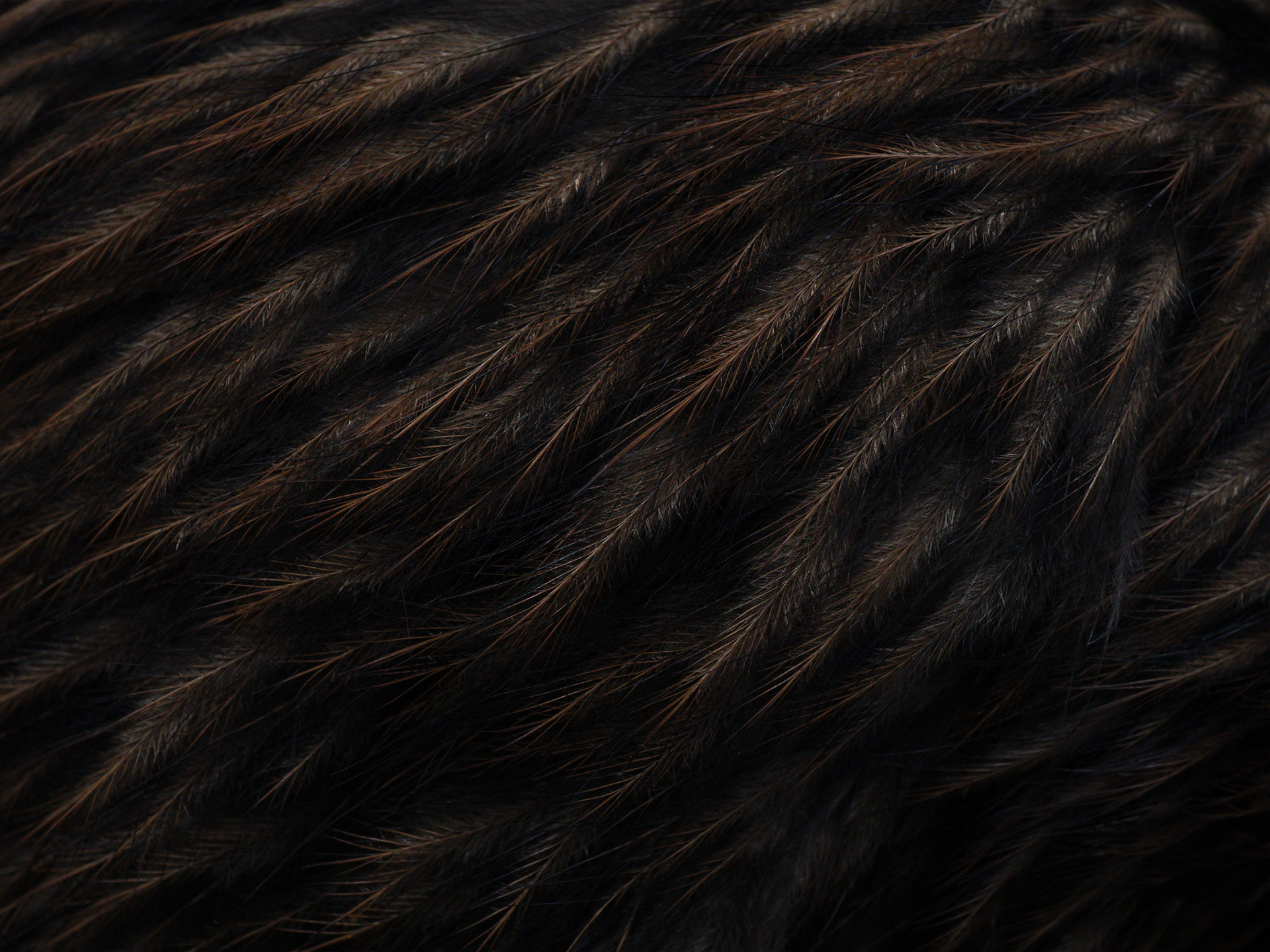Celebrating Five Years of Māia the Kākā!
Celebrating Five Years of Māia the Kākā at Central Energy Trust Wildbase Recovery!
Māia the kākā has officially been part of our at Central Energy Trust Wildbase Recovery whānau for five years!From a sick young bird in hospital to the “queen of the aviary,” Māia has come a long way—becoming both a visitor favourite and an important ambassador for kākā conservation.
Māia’s story began in Wellington in 2013 when she was found unwell as a young bird. Rescued and taken to The Nest Te Kōhanga (Wellington Zoo’s wildlife hospital), vets discovered she was suffering from metabolic bone disease—a serious condition caused by an imbalanced diet, often linked to eating human food. Her condition had already led to a broken leg, which was stable on arrival to hospital and had healed with a slight bend.
While she recovered well, the long-term effects of malnutrition meant that Māia needed daily medication and careful monitoring. The risk of arthritis (which she now has) and health complications—especially if she were to lay eggs—meant she couldn’t return to the wild. Instead, she was given a permanent home where she could be well cared for: Central Energy Trust Wildbase Recovery.
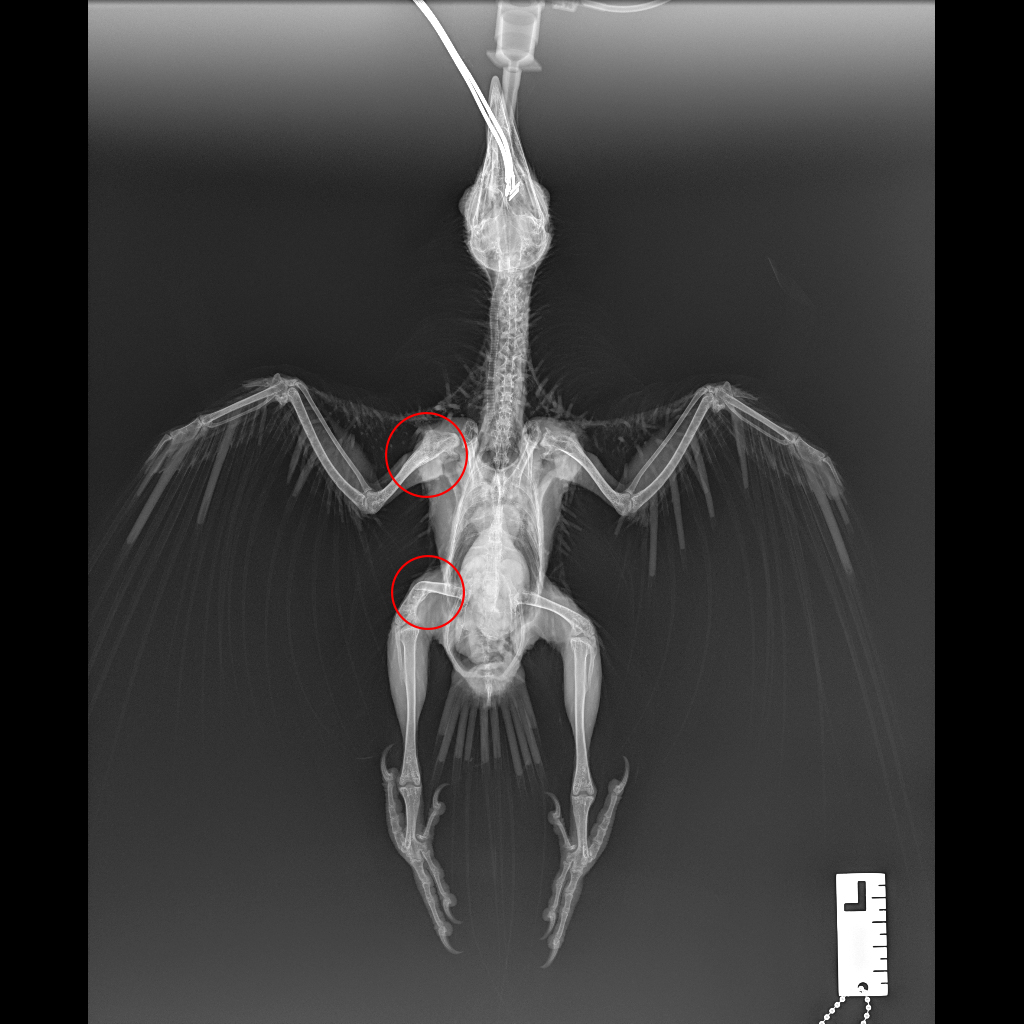
Since arriving in 2020, Māia has made herself right at home in our large walk-through aviary. She quickly bonded with Tāne, our resident male kākā, and the two are often seen playing, foraging, and causing mischief. Their antics—like picking out their favourite food and dropping the rest on the ground—never fail to entertain visitors and staff alike!
Māia is a curious and intelligent bird, always keeping a close eye on what’s happening in the aviary. Whether she’s supervising staff or investigating enrichment items, she brings a cheeky charm to every interaction.
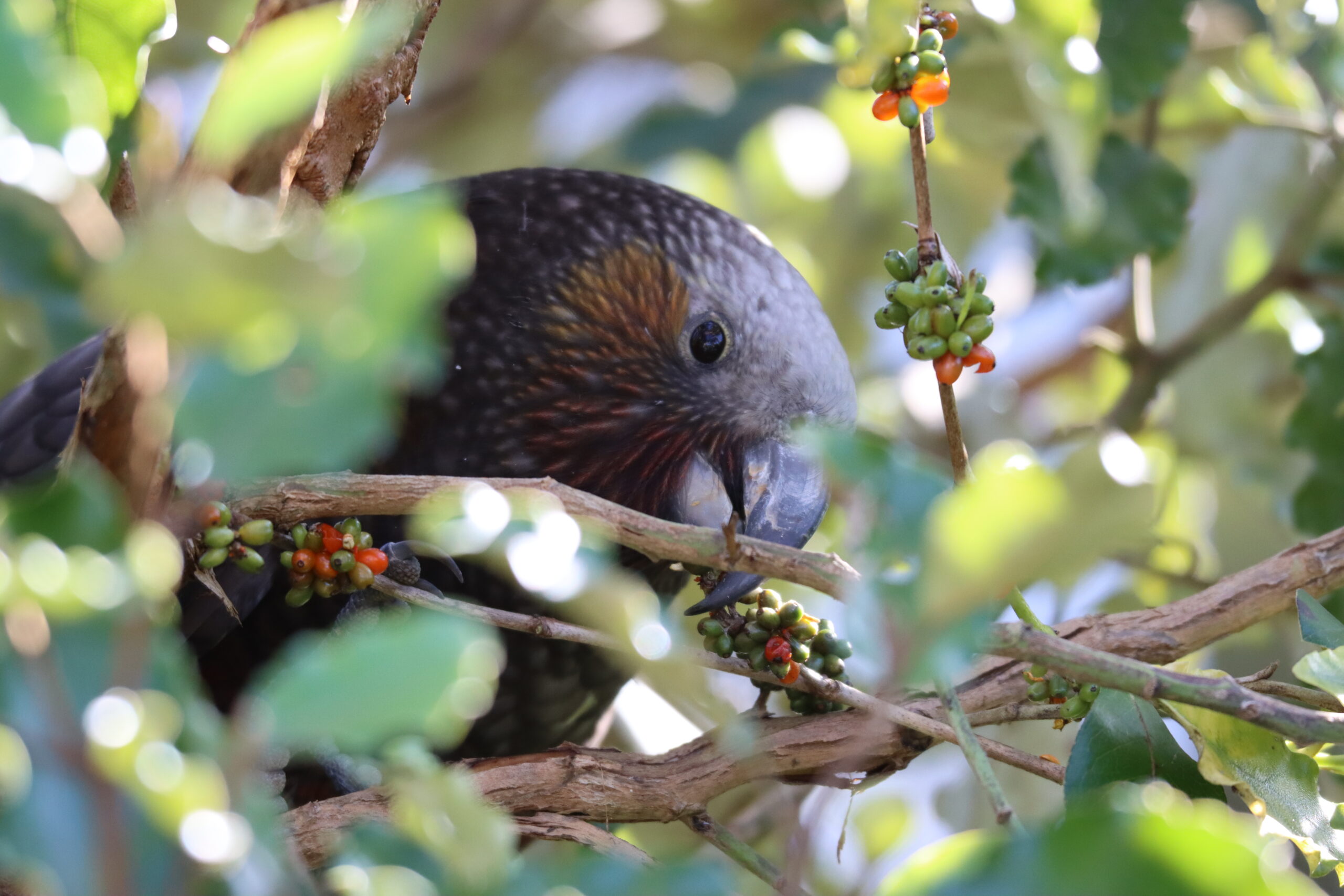
Beyond her playful personality, Māia has an important role—helping to educate visitors about kākā conservation. Her story highlights why it’s crucial not to feed native bird human food. Items like bread, nuts, and crackers can cause serious health issues in wild birds, leading to preventable conditions like metabolic bone disease. Instead, the best way to support kākā is to plant native trees like kōwhai, mānuka, and flax, which provide the natural food they need to thrive.
As we mark five years of Māia at Central Energy Trust Wildbase Recovery, we celebrate her journey, resilience, and impact on conservation education. Next time you visit, stop by the aviary to say hello to Māia and Tāne—and to learn more about how you can help protect New Zealand’s precious kākā!
